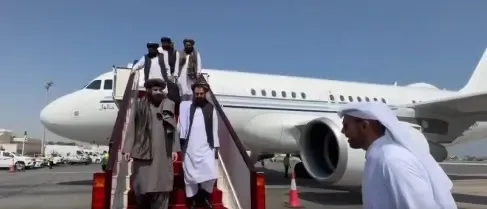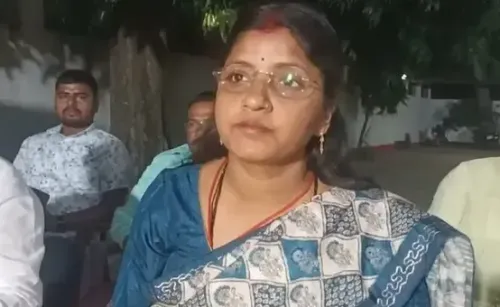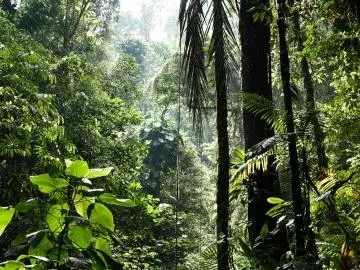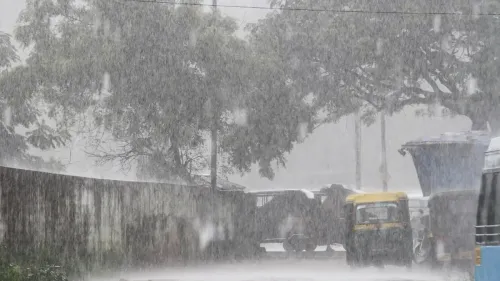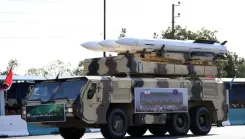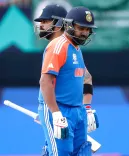Did PM Modi Just Expose Congress’s Policy Failures?
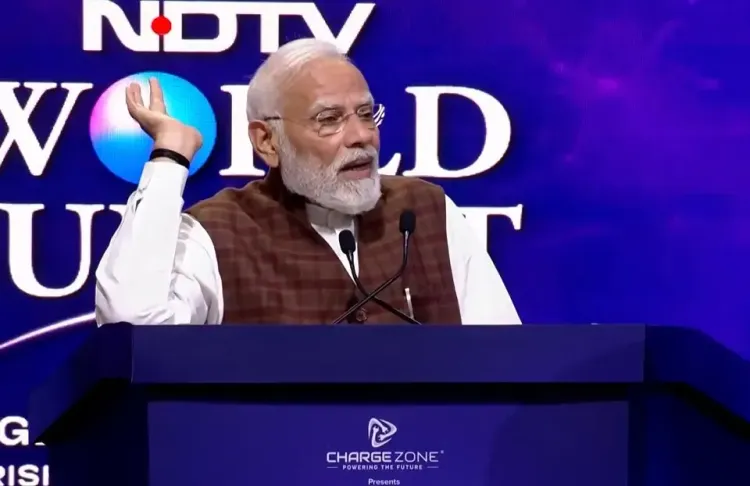
Synopsis
Key Takeaways
- PM Modi criticized Congress for past policy failures.
- India has emerged as a leading global economy since 2014.
- His government has democratized banking services.
- Inflation and growth rates have significantly improved.
- India is now an attractive destination for global investors.
New Delhi, Oct 17 (NationPress) During the NDTV World Summit on Friday, Prime Minister Narendra Modi provided a stark overview of the challenges India faced prior to 2014, attributing these issues to the Congress party's policy mismanagement. He accused Congress of promoting policy paralysis, widespread corruption, and economic instability that left the country exposed.
While addressing global leaders, including Sri Lankan Prime Minister Harini Amarasuriya, former UK Prime Minister Rishi Sunak, and former Australian Prime Minister Tony Abbott, PM Modi framed the narrative of India’s transformation against the backdrop of failures from the Congress era.
He contrasted his administration’s inclusive reforms with the previous government's legacy of exclusion, stating, “They distanced people from banks; poor people were scared to even enter them. When we took over, half the population lacked bank accounts.”
His government has since opened over 50 crore Jan Dhan accounts, democratizing finance and establishing India as a leader in digital transactions.
“Unlike Congress, we worked to democratize policies, not governmentalize them. This is the driving force behind Unstoppable Bharat,” he asserted, emphasizing banking reforms that addressed the NPA crisis inherited from Congress.
Delivering a pointed critique of Congress’s governance, PM Modi accused them of creating a “mountain of non-performing assets”, alienating citizens from the banking system, and proposing to close petrol stations for 12 hours daily to avoid subsidies.
“Before 2014, discussions revolved around preparing for global challenges, safety of women, and terrorist sleeper cells. Many were skeptical about India’s recovery,” he reflected.
However, India has risen from the “fragile five” to being one of the top five economies globally.
“Inflation is under 2 percent, and our average growth over the past three years stands at 7.8 percent - an unprecedented achievement,” PM Modi highlighted, referencing recent upward adjustments to India’s growth forecasts by the IMF.
The Prime Minister also criticized Congress’s subsidy strategies, pointing out their plan to close petrol stations from 8 PM to 8 AM to avoid financing them.
“Now, stations operate 24/7, ensuring accessibility,” he stated, underscoring his government’s commitment to public welfare.
PM Modi showcased India’s attractiveness to global investors, mentioning Google's recent significant investment and the growing interest in the energy and semiconductor sectors.
“The world recognizes opportunity in India and regards us as a responsible partner,” he concluded. He depicted India’s trajectory as transforming “every risk into reform, reform into resilience, and resilience into resolution.”
Disregarding Congress’s earlier liberalization efforts as “reforms out of compulsion,” he positioned his policies as proactive and focused on the people.
As the summit, themed “Edge of the Unknown: Risk, Resolve, Renewal,” hosted global discussions, PM Modi’s address reaffirmed India’s upward trajectory, portraying his government’s reforms as a decisive departure from Congress’s shortcomings, paving the way for a stronger and more inclusive nation.

